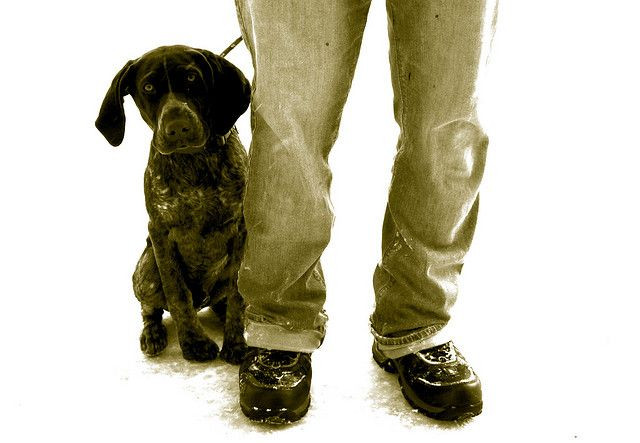Could Understanding Dog Behavior Help Spot Failing Health In Elderly? Scientists Develop Collar To Track Dog Activity

Dogs’ various health benefits to humans have been praised for years. From helping the elderly deal with loneliness to sniffing out cancers, thousands of years of canine companionship has brought with it benefits that are unmatched by many other animals. Now, researchers are looking to use this strong link to spot strange behavior in dogs that might identify elderly owners whose health is deteriorating.
A dog’s connection to his owner is strong. Research has shown that they develop bonds with their owners that are similar to those of an infant and their caregiver, and that they also feel emotions. These connections allow the dog to become attuned to their owner’s behavior. Should their owner’s behavior change, their behavior may also change, researchers said.
“A dog’s physical and emotional dependence on their owner means that their wellbeing is likely to reflect that of their owner and any changes, such as the dog being walked less often, perhaps not being fed regularly, or simply demonstrating ‘unhappy’ behavior, could be an indicator for families that an older relative needs help,” Nils Hammerla, co-author of the study and a PhD student at Newcastle University, said in a statement.
But to do this, the researchers first had to understand how dogs behave in their everyday lives. They fitted a waterproof collar, complete with accelerometer and a video camera, around the necks of various dog breeds. “This had to work for all dogs,” Dr. Cas Ladha, of the University, said in the statement. “So the challenge was to map distinct behaviors that correlated whether the collar was being worn by a square-shouldered bulldog or a tiny Chihuahua.”
The researchers found a total of 17 distinct behaviors that all dog breeds had in common, including barking, chewing, drinking, laying, shivering, and sniffing. A change in these behaviors would make it easier to notice a change in the dog’s health, and possibly their owner’s health as well.
“A lot of our research is focused on developing intelligent systems that can help older people live independently for longer,” Dr. Ladha said in the statement. “But developing a system that reassures family and carers that an older relative is well without intruding on that individual’s privacy is difficult. This is just the first step, but the idea behind this research is that it would allow us to discreetly support people without the need for camera.”
Source: Ladha C, Hammerla N, Hughes E, et al. Dog's life: wearable activity recognition for dogs. UbiComp ’13. 2013.



























